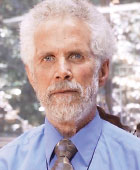We Need to Talk Nondefensively About Race and Admit Shortcomings
Abstract

Everyone I know is participating in demonstrations proclaiming Black Lives Matter or donating money to the cause. But whites who join the movement must eventually look within at previously unexamined remnants of society’s structural racism embedded deep within our consciousness. A Black person raises a criticism about insensitive racial bias in what a white person has just said. In far too many cases, white people feel unfairly criticized and turn away from the struggle. That is very unfortunate. We have to evolve new ways to hear the concerns raised by people of color about assumptions we make because of our socialization as whites.
I went to the South to participate in the 60s civil rights movement. Leaders of the Student Nonviolent Coordinating Committee (SNCC) shouted “Honky, go home!” I was crushed. My first response was, “I’m not a racist—I am trying to help. Why are they treating me like this?” I talked to a Black friend, a leader of SNCC in Los Angeles, and he told me, “Terry, you are a honky. Why do you think that Black activists would welcome you into the leadership of a movement when the movement is all about developing Black leadership; that’s self-determination.” Hard to take in, but true.
There was discussion of the “Moses Syndrome,” the white civil rights activists’ unexamined and unconscious belief that whites are the natural leaders of all social movements, even movements to free people of color. That belief was acted out in all sorts of strange ways—for example, in white participants’ dominating discussions at SNCC meetings in Mississippi with Black and white attendees. That’s what made Black leaders say “Honky, go home.” They wanted us to organize our white peers to end racism while they organized the Black community. I learned a very valuable lesson. It wasn’t that I was a racist in some kind of all-or-nothing categorization. It ran deeper than that, and it was more pervasive. James Baldwin said it: The mouse is always more aware of what the cat is up to than the other way around.
When I traveled by car from Echo Park in Los Angeles to my first job as a psychiatrist at Martin Luther King Jr. Hospital and Charles Drew Medical School in Watts and got off the freeway, I would feel safer seeing a police car. I would think to myself, “Now I don’t need to lock my doors as I drive on the streets to the hospital.” My mentor, Dr. George Mallory, a distinguished Black psychiatrist, drove the same route to the hospital every day. He wore three-piece suits and drove a late-model Cadillac, whereas I wore casual clothes, had long hair, and drove a beat-up VW bug. He was pulled over repeatedly by the police and roughly frisked while the police would simply wave me on as I passed.
Very many whites are committed to ending racism and fostering social justice, but we are products of our socialization in a structurally racist society. I do not have to give much thought to the possibility that the police will shoot and kill one of my sons as they walk in our neighborhood, but Black parents have such thoughts every minute. When a Black colleague points out that something I said or did was insensitive to the pain in her situation and could be better formulated to take racial inequities into account, I thank her and grow as a person. I can only hope that she will think of me not as a racist, but as a white person who wants to do the right thing and is relatively unschooled in the harsh realities of racism because of having grown up as a privileged white. I hope she can trust me a little more now on account of my demonstrated willingness to confront the biases I had inevitably accrued in a society where Black lives are valued less than white ones. We can only end racism together. The real test of our shared commitment is how long we stay focused on the murder of George Floyd (and many others), and how much energy we put into ending racism on an ongoing basis. ■



